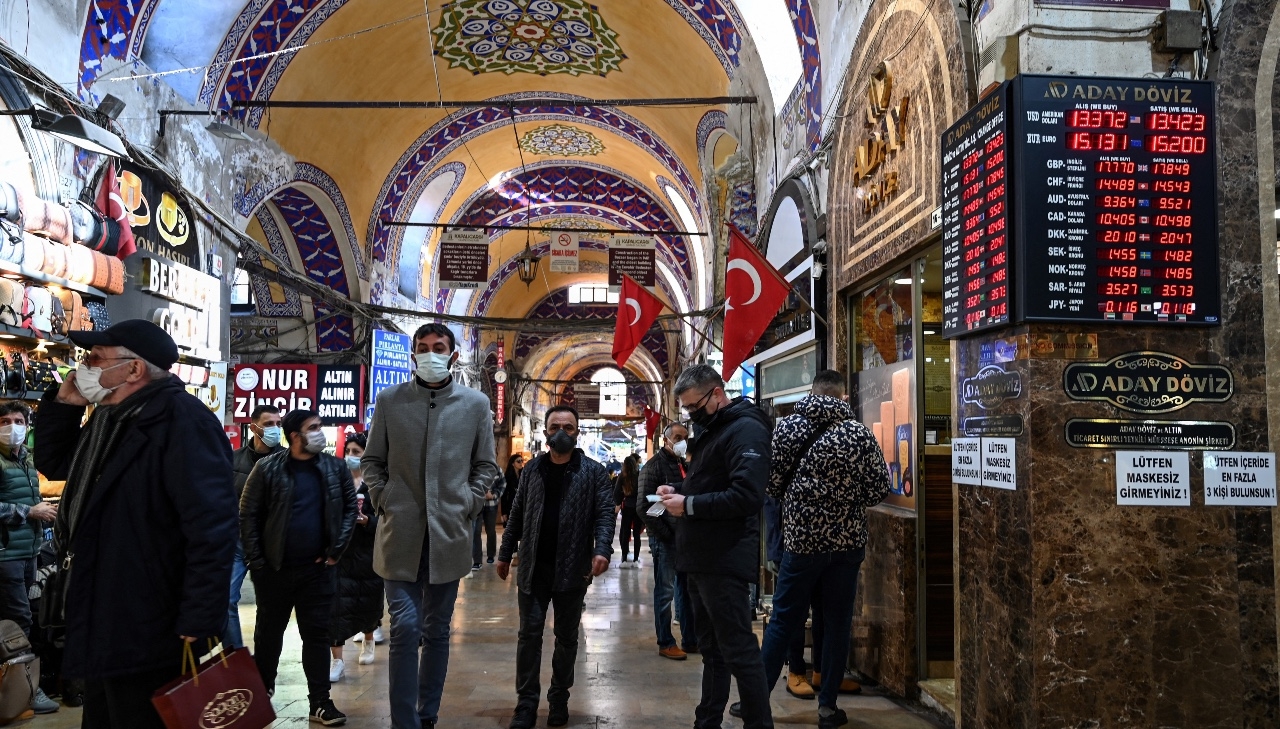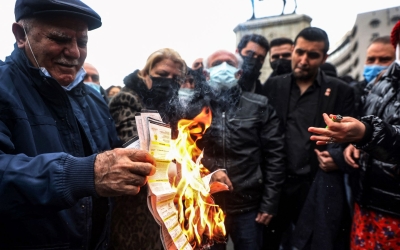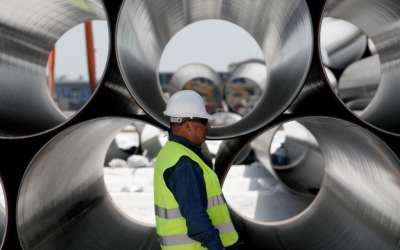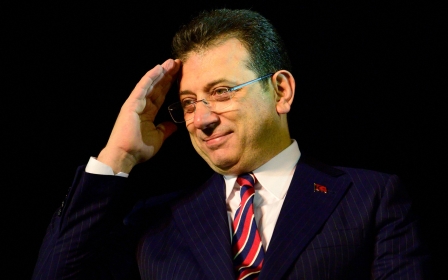Turkey sharply increases minimum wage as inflation bites

Turkish President Recep Tayyip Erdogan on Thursday announced a big boost in the minimum wage as part of an effort to ease the impact of inflation, which is one of the highest in the world.
The 55 percent increase will be felt through a vast segment of the population. More than 40 percent of Turkey's workforce earns the lowest income allowed by law.
The decision comes as Erdogan gears up for what is expected to be a tough election next year.
Turkey’s leader has relied on working-class support at the polls for two decades now, but they have been some of the hardest hit by inflation, which stands at 85 percent.
In 2023, Turkey’s minimum wage will be TL8,500, or $455 a month. The number is double the rate it was at the start of 2022 and 55 percent higher than it has been since July.
Despite the big headline wage boost, the plunge in the Lira’s value means that actual wages have increased only fractionally in dollar terms over the past year.
Erdogan hinted on Thursday that the minimum wage could go higher. “If we see an unexpected situation, we will not hesitate to make an interim adjustment,” he said.
“As a government that has increased the income and welfare of our workers, we won’t allow anyone’s rights to be lost. We are here for our nation," he added.
Rapid decline
While the entire world has seen price rises, which have been compounded by the war in Ukraine, many economists say that Turkey’s inflation problem is largely self-inflicted.
Erdogan subscribes to an unorthodox economic theory that high-interest rates cause inflation. He has pressured the central bank to cut borrowing costs and increase credit access despite conventional wisdom saying otherwise.
Turkey’s official inflation reading of 84.39 percent means that banks lose 75.39 percent of a loan's value if they lend money for a year at the official interest rate.
Erdogan's approach set off a currency crisis that saw the lira lose nearly half its value in a matter of weeks late last year.
The government has responded by spending its reserves on currency support measures and imposing complex economic rules aimed at bringing inflation under control.
Erdogan promised on Thursday that inflation will slow to 20 percent by the end of next year.
"We will witness a rapid decline of inflation rates starting this month," he said in televised remarks.
Analysts expect inflation to start falling sharply because the data will be compared to readings from a period 12 months ago when prices were soaring at a breakneck pace.
While rising wages could help Erdogan’s election chances, the newer costs could dent his economic model based on maximising Turkey’s cheaper costs to boost exports and increase tourism.
Middle East Eye propose une couverture et une analyse indépendantes et incomparables du Moyen-Orient, de l’Afrique du Nord et d’autres régions du monde. Pour en savoir plus sur la reprise de ce contenu et les frais qui s’appliquent, veuillez remplir ce formulaire [en anglais]. Pour en savoir plus sur MEE, cliquez ici [en anglais].






